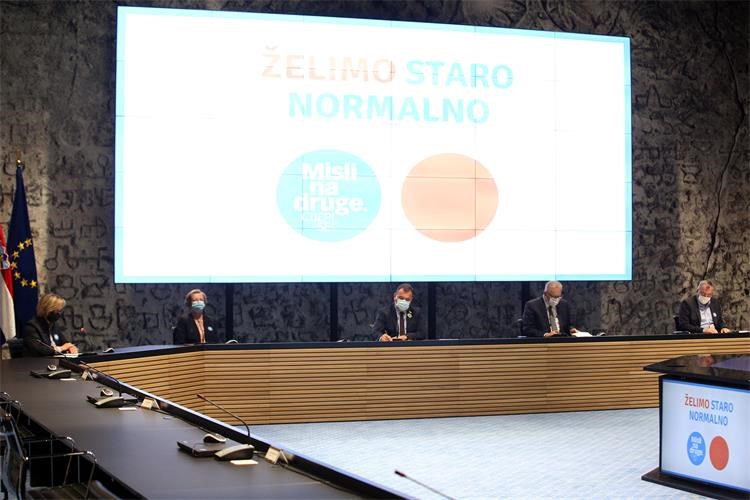


Restaurants will be allowed to serve guests indoors while cafes and bars will still only be allowed to serve guests outdoors.
Bakeries can stay open until 11 pm instead of 10 pm and alcohol must not be sold from 11 pm to 6 am. There is no limit to the number of people attending funerals but there must be no close contact between those attending, the head of the response team, Davor Božinović, said.
Wedding parties can have up to 120 guests and can continue beyond 11 pm. Wedding planners have to check whether all participants have been inoculated, tested or have recovered from COVID-19. The response team needs to be informed of a wedding party five days prior to it.
Casinos and betting parlours can remain open until 11 pm. Dance schools, children's play groups and so on can now be held normally.
Rules for religious rites according to size of venue
Training in school halls is still banned but it can be conducted in other sports venues. Open-air fairs are allowed but guests are required to wear masks.
Religious rites are not restricted to 100 people anymore but the number of participants will depend on the size of the venue, with minimum four square metres per person.
The restriction of 40% occupancy in public transport no longer applies, however, masks are mandatory.
As regards cross-border travel, children under 12 travelling with parents who have been inoculated, have recovered or have a negative test, do not need to have a test or go into self-isolation.
Night clubs are to remain shut for the time being.
Croatia has 41.8% fewer new cases than last week
Croatia now has 41.8% fewer new cases on the week. The 14-day incidence of 191.5 cases per 100,000 population puts Croatia in 16th place in the EU whereas it is in 20th place with regard to the fatality rate, the head of the Croatian Public Health Institute, Krunoslav Capak, said.
He said that participants in a trial conference on 14 and 15 May in Pula were tested eight days later and were negative for COVID-19.
Text: Hina